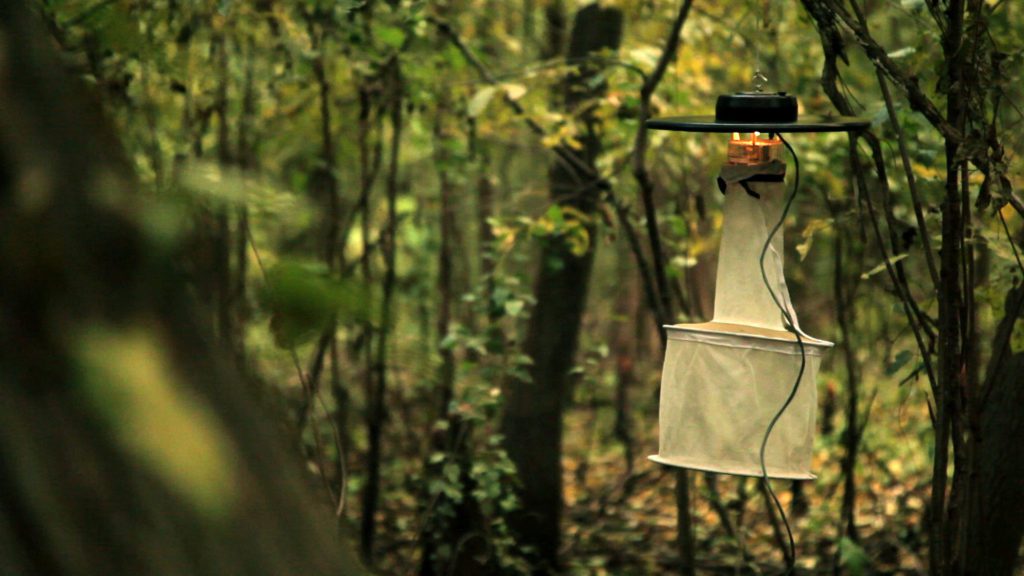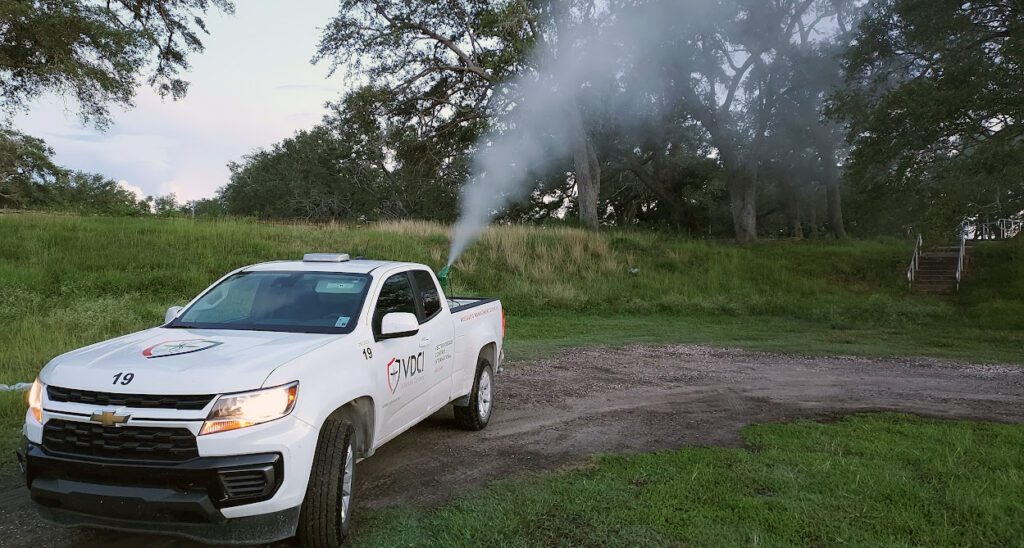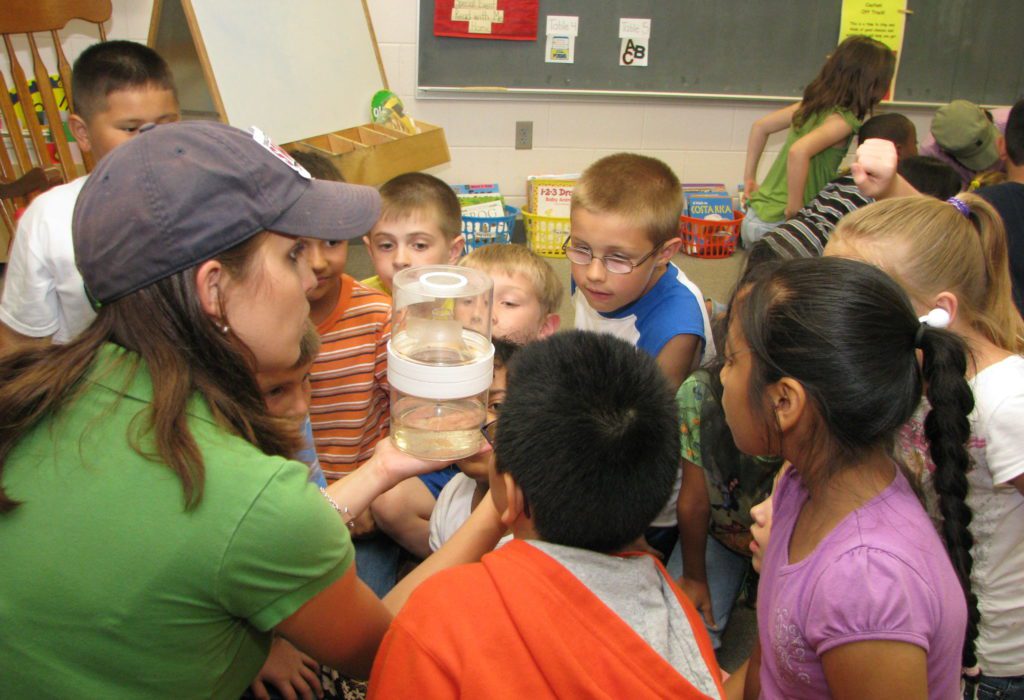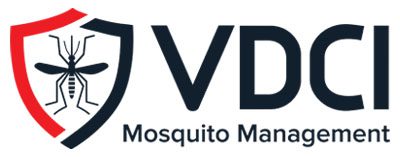7 Strategies for Comprehensive Mosquito Management
Integrated Mosquito Management (sometimes referred to as Integrated Pest Management) is the term used to describe the comprehensive approach of managing mosquito populations to relieve nuisance and also protect public health. A proper Integrated Mosquito Management program uses various techniques in order to reduce mosquito numbers while maintaining a quality environment.
Below are the 7 main aspects of an Integrated Mosquito Management program:

1. Mosquito Surveillance
Mosquito surveillance provides the data on which all Integrated Mosquito Management actions are taken and is therefore the backbone of an integrated approach to mosquito management. Using various types of traps, one can determine what species are present in a given area. Speciation is critical in order to determine where the mosquitoes are breeding and whether or not there is a disease risk. In addition, choices of control methods will be influenced by the species of mosquito that is present. Mosquito populations can be tracked over time to compare current data to historical numbers.
2. Physical Mosquito Control or Source Reduction
Source reduction of larval environments can be an effective control measure and is an important component of an integrated pest management approach. It can often be the most effective approach since you are eliminating breeding habitat. Dumping a birdbath, bucket, or kiddie pool that has larvae present, unclogging a rain gutter that is holding water, clearing a culvert so a ditch will flow more easily, and disposing of a tire pile are all examples of source reduction techniques. Although an important component, source reduction is not always feasible, particularly for certain habitats.
3. Mosquito Larval Control Measures
When source reduction is not feasible, it may be necessary to use larval control measures to prevent the larval mosquitoes from hatching and becoming adults. Depending on the habitat and species, either biological or chemical control methods are options for controlling mosquito larvae.

4. Adult Mosquito Control (Adulticiding)
Even with a proactive integrated pest management approach, it is impossible to eliminate all breeding habitat or to control all mosquitoes before they become adults. Therefore, another important component of an Integrated Mosquito Management program is adulticiding, or the control of adult mosquitoes through the application of adulticides in an Ultra-Low-Volume application. Different species are active at different times of night and are susceptible to different adulticides, making your mosquito surveillance data extremely important for effective control of adult mosquitoes.
5. Insecticide Resistance Monitoring
Mosquitoes are extremely adaptable and have several generations in only one summer, so they can develop resistance to pesticides. As a result, a critical component of an integrated mosquito management program is the monitoring of such resistance. Through cage trials and bottle bioassays, one can determine whether a certain mosquito species is developing resistance to certain chemicals.

6. Public Education
Teaching people to be aware of potential mosquito breeding habitats in their area and showing them how to reduce or eliminate such habitats can help reduce mosquito breeding. Furthermore, educating the public on how to avoid mosquito bites can help prevent the spread of mosquito-borne diseases. Each interaction with the public is an opportunity to educate people about how to reduce mosquito habitat and how to protect themselves. Fliers and educational materials can enhance this aspect of a larval control program.
7. Record keeping
Maintaining data is a critical component of an Integrated Mosquito Management program. GPS locations are important so that future technicians can access potential breeding sites. Maintaining data from year to year allows one to understand the trends in breeding. Data collection and maintenance are also needed for regulatory compliance.
Contact Our Integrated Mosquito Management Experts
We are government partners in Integrated Mosquito Management. Complete the form below or call 800-413-4445 to learn how VDCI can help implement an Integrated Mosquito Management program or support an existing program in your community.
 Since 1992, Vector Disease Control International (VDCI) has taken pride in providing municipalities, mosquito abatement districts, industrial sites, planned communities, homeowners associations, and golf courses with the tools they need to run effective mosquito control programs. We are determined to protect the public health of the communities in which we operate. Our mosquito control professionals have over 100 years of combined experience in the field of public health, specifically vector disease control. We strive to provide the most effective and scientifically sound mosquito surveillance and control programs possible based on an Integrated Mosquito Management approach recommended by the American Mosquito Control Association (AMCA) and Centers for Disease Control and Prevention (CDC). VDCI is the only company in the country that can manage all aspects of an integrated mosquito management program, from surveillance to disease testing to aerial application in emergency situations.
Since 1992, Vector Disease Control International (VDCI) has taken pride in providing municipalities, mosquito abatement districts, industrial sites, planned communities, homeowners associations, and golf courses with the tools they need to run effective mosquito control programs. We are determined to protect the public health of the communities in which we operate. Our mosquito control professionals have over 100 years of combined experience in the field of public health, specifically vector disease control. We strive to provide the most effective and scientifically sound mosquito surveillance and control programs possible based on an Integrated Mosquito Management approach recommended by the American Mosquito Control Association (AMCA) and Centers for Disease Control and Prevention (CDC). VDCI is the only company in the country that can manage all aspects of an integrated mosquito management program, from surveillance to disease testing to aerial application in emergency situations.

